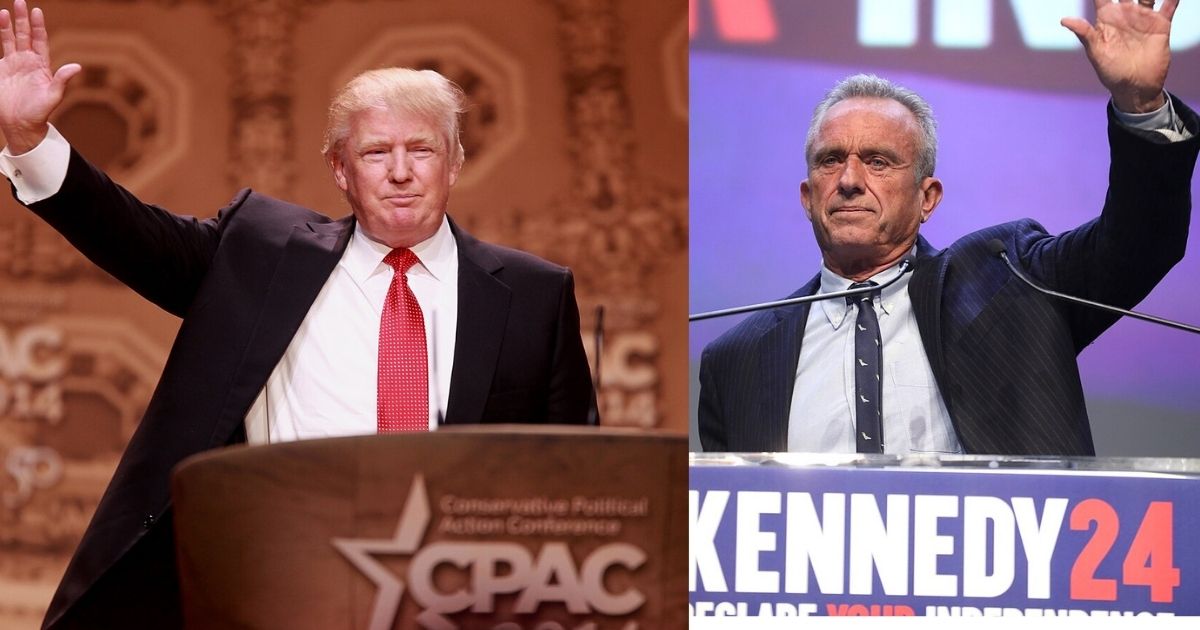President Donald Trump likes everything controversial. He likes making random claims and then leaving it to the people around him to either prove or disapprove of them. By the time anyone comes up with any theory, evidence, or argument, so much time has passed that there are new conspiracy theories that take up the headlines.
In a similar manner, Donald Trump held another press conference and, this time, talked about autism. He expressed deep concern over the increasing number of autism diagnoses in the United States. He described its rise as “artificial” and called it an indication of a broader public health crisis.
He cited the statistics that concluded a jump in autism cases from 1 in 10,000 children in the early 2000s to 1 in 31 in 2022. Based on this, Trump suggested that there are external factors at play. He also called it a troubling epidemic.
His detailed remarks lack scientific consensus. Donald Trump emphasized the urgency of investigating as he believes it to be man-made causes of the condition. He also asserted that autism has become “one of the greatest childhood crises in American history.”
pic.twitter.com/BJ8AEbnI8q RFK JR: And these are kids who will never pay taxes, they’ll never hold a job, they’ll never play baseball, they’ll never write a poem. They’ll never go out on a date. Many of them will never use a toilet unassisted
— Victor Bigham 🇺🇸 (@Ravious101) April 19, 2025
Health and Human Services Secretary Robert F. Kennedy Jr. has also supported Trump’s claims. He is a well-known figure for his controversial opinion on vaccines and public health. RFK Jr. has always been an anti-vaxxer. He also made wild claims about Measles vaccines which directly led to the measles outbreak in the southern part of the country.
Measles outbreak surpasses 1,000 cases for the first time in 30 years https://t.co/fKcFK5Yjx4 pic.twitter.com/O6BU3ojd2w
— New York Post (@nypost) May 10, 2025
RFK Jr. described the rise in diagnoses as evidence of an “autism epidemic.” He also echoed the president’s opinion of current medical explanations. He pledged to uncover the root causes of autism through the Make America Healthy Again (MAHA) Commission.
Such statements and steps endorsed by the government draw criticism from the medical and scientific communities.
Experts have been critical and swift in responding to such statements. Medical professionals argue that the apparent rise in autism cases is primarily due to improved diagnostic tools, broader criteria, and greater awareness. This is especially true in populations that were historically underdiagnosed.
If you’re curious about the recent rise in autism diagnoses, go read this.
It details how much of the rise in diagnoses is down to diagnostic drift and increasing screening. pic.twitter.com/swWZgFxgY4
— Crémieux (@cremieuxrecueil) December 16, 2024
The scientific community has also warned that the vaccine-autism link has been debunked time and again, and there is no proof of any such claim. They have warned people against promoting such unchecked and discredited theories. Such propaganda risks undermining public trust in medicine. This could also steer attention away from genuine support systems for individuals with autism and their families.
Health policy experts are worried after Trump pledged to investigate “artificially induced” autism. Critics argue that such language dangerously echoes eugenic ideologies. It also raises fears that these investigations could lead to discriminatory practices. It would also place unfounded blame on parents, physicians, or certain communities.
MAHA is powerful because it means different things to different people.
To some, it’s a radical stance against childhood vaccines. To others, it’s a personal dedication to healthier food.
To many, it’s:
• A lifesaving intervention of holistic alternatives when traditional… pic.twitter.com/JhVvNzViRm
— Lauren Lee (@sheislaurenlee) May 17, 2025
The MAHA movement also proposed an autism registry and chronic disease investigation. It will seek to tackle what the administration terms a “childhood chronic disease crisis.” It has been framed as a sweeping effort to restore public health. The initiative claims to address not just autism but a range of pediatric conditions.
A preliminary report from the MAHA Commission lays out its focus areas. It will guide its efforts over the next 100 days.
Despite the administration’s controversial framing, there is potential for meaningful action. It could be the next great step towards public health if the steps taken are based on science and medical studies.













